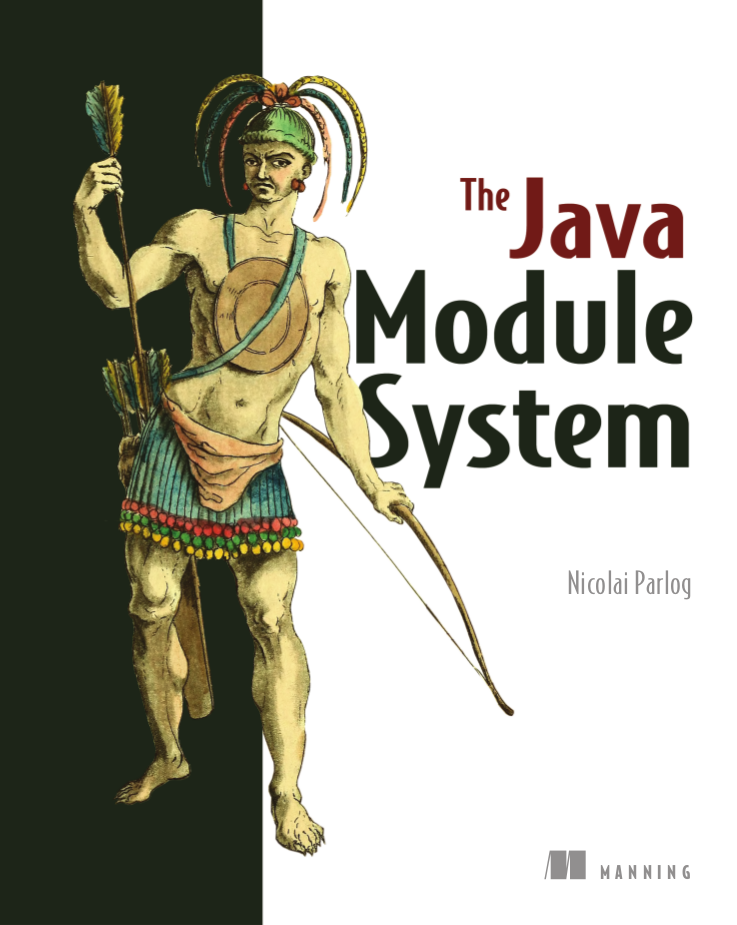String json = "{\n"
+ "\t\"name\": \"" + name + "\",\n"
+ "\t\"year\": \"" + bday.getYear() + "\"\n"
+ "}";Project Amber
The SolutionFactoryTo Java's Problems
Java’s Got Problems
slow
old
verbose
cumbersome
no fun!
None of that is true.
But none of it is (entirely) false, either.
Java’s Got Problems
A more nuanced view
(on some issues):
strings lack expressiveness
the type system and encapsulation
can get in the waydealing with data is clunky
getting started isn’t easy
The SolutionFactory
Project Amber:
Right-sizing ceremony.
(Things that are important but cumbersome
should be made less cumbersome.)
Profile:
project / wiki / mailing list
launched March 2017
led by Brian Goetz and Gavin Bierman
Project Amber
Goal is not:
code golf
feature overload
Project Amber
Instead, identify situations where:
Java lacks expressiveness
strengths turn into weaknesses
tensions and tradeoffs occur
And resolve those for greater good!
Nota Bene
Amber is not the only project doing that!
Valhalla — design vs performance
Loom — simplicity vs scalability
Panama — flexibility vs safety
Leyden — dynamism vs performance
Table of Contents
Getting back to Project Amber:
strings
type safety & encapsulation
dealing with data
starting (with) Java
Slides at slides.nipafx.dev.
Strings
How Project Amber
smartly enhances
one of Java’s most basic types.
String Issues
What we’re expressing:
we need a
String✅ 😃across multiple lines 🫠
with indentation 🫣
and quotation marks 😢
and embedded variables 😭
String Issues
String literals lack expressiveness:
no concept of multi-line-ness
no concept of interpolation/processing
no concept of rawness
Project Amber is working on that.
(But without throwing it all into one pot.)
Text Blocks
Java 15 finalized text blocks (JEP 378):
multiline string literals
understand incidental vs essential indentation
require less escaping
String duke = """
{
"name": "Duke",
"year": "1992"
}
""";We can now "enable" multi-line-ness.
Text Blocks
But embedding variables is still cumbersome.
With String::formatted:
String json = """
{
"name": "%s",
"year": "%d"
}
""".formatted(name, bday.getYear());String Templates
String Templates
But:
So, to be clear: there will be no string
template feature, even with
--enable-preview, in JDK 23.
Gavin Bierman, April 5th
😭😭😭
Raw Strings
proposed for Java 12 (JEP 326)
withdrawn due to complexity
would be convenient in some form
String regex = "\\[\\d{2,4}\\]"; // 🤔🤔🤔
// made-up syntax!
String rawRegex = !"\[\d{2,4}\]" // 🤔Maybe, in the future, we can "enable" rawness. 🤞
(But no plans at the moment.)
Summary
Java’s strings are:
essential to development
not expressive
Project Amber introduces new features that:
make strings more expressive
learned from other languages
can be combined as needed
Type Safety & Encapsulation
How Project Amber tackles the tension
explicitness/safety vs succinctness
for less verbosity and new features.
Type Safety
Java is…
- strongly typed:
every field, variable, method argument
and return has a type- statically typed:
all this is known at compile time
Encapsulation
For our types, fields, methods:
decouple API from internal state
hide internals (behind accessors)
pick lowest feasible visibility
Type Safety & Encapsulation
We rely on them to:
model domains
guarantee invariants
modularize problems
catch errors early
understand code
Type Safety & Encapsulation
But, they can be:
verbose
redundant
Underlying tension:
explicitness/safety vs succinctness.
Throwback: Lambdas
Predicate<Person> isOld = person -> person.age() >= 30;didn’t allow anything new!
focus on what’s essential
(behavior and semantics)removed lots of verbosity
(and bits of explicitness)
Found a (situationally) better balance.
⇝ More "code as data".
Project Amber
Aims to do more of that:
give up small amounts of benefits
in suitable, specific situations
for new semantics and features
for much more succinctness
Local-Variable Type Inference
Java 10 introduced var (JEP 286):
var audienceMember = new Person("John Doe");focus on what’s essential
(variable name and expression)removes verbosity & redundancy
(and bits of explicitness)
Finds a better balance (if used wisely).
⇝ More readable variables.
Records
Java 16 introduced records (JEP 395):
record Person(String name, LocalDate birthday) { }Transparent carriers for immutable data.
compiler understands internals
couple API to internals
reduce verbosity a lot
Defines a new point of balance.
⇝ More "data as data".
Pattern Matching
Destructuring Records
Java 21 introduced record patterns (JEP 440):
if (obj instanceof Person(var name, var bday)) {
// use `name` and `bday`
}
switch (obj) {
case Person(var name, var bday) -> {
// use `name` and `bday`
}
// ...
}Destructuring Records
var person = fetchPerson();
var unnamed = new Person("", person.birthday());JEP 468 proposes derived record creation:
var person = fetchPerson();
var unnamed = person with { name = ""; };Destructuring Records
var person = fetchPerson();
var name = person.name();
var bday = person.birthday();
// use `name` and `bday`In the future (no JEP, but it’s coming):
// speculative syntax
Person(var name, var bday) = fetchPerson();
// use `name` and `bday`Summary
Type safety and encapsulation:
are bedrocks of Java
but aren’t free
Project Amber introduces new features that:
lower the cost
make them shine brighter
Dealing With Data
How Project Amber introduces
a new programming paradigm
to handle data as data.
Data-Oriented Problems
Essentials when dealing with data
(JSON, SQL result, events, …):
represent data with simple, immutable types
model alternatives explicitly
make illegal states unrepresentable
represent polymorphic behavior with functions
(de)construct data easily and quickly
Example: GitHub Crawler
Starting with a seed URL:
identifies kind of page
follows links from GitHub pages (⇝ 1.)
public static Page loadPageTree(/*...*/) {
// ...
}What does Page look like?
Data Representation
"Represent data with simple immutable types." ✅
Records:
public record ErrorPage(
URI url, Exception ex) { }
public record ExternalPage(
URI url, String content) { }
public record GitHubIssuePage(
URI url, String content,
Set<Page> links, int issueNumber) { }
public record GitHubPrPage(
URI url, String content,
Set<Page> links, int prNumber) { }Modeling Alternatives
"Model alternatives explicitly." ❓
Use sealed types to limit inheritance.
Sealed Types
Java 17 introduced sealed types (JEP 409):
public sealed interface Page
permits ErrorPage, SuccessfulPage {
// ...
}Only ErrorPage and SuccessfulPage
can implement/extend Page.
⇝ interface MyPage extends Page doesn’t compile
Modeling Alternatives
public sealed interface Page
permits ErrorPage, SuccessfulPage {
URI url();
}
public sealed interface SuccessfulPage
extends Page permits ExternalPage, GitHubPage {
String content();
}
public sealed interface GitHubPage
extends SuccessfulPage
permits GitHubIssuePage, GitHubPrPage {
Set<Page> links();
default Stream<Page> subtree() { ... }
}Illegal States
"Make illegal states unrepresentable." ✅
Combine:
sealed types
records
data validation
(during construction)
(Also makes code more self-explanatory.)
Representing Behavior
"Represent polymorphic behavior with functions." ✅
(Static) methods that have data as input:
public static String createPageName(Page page) {
// ...
}"Polymorphic"❓
Data-Driven Polymorphism
Switch over input type:
public static String createPageName(Page page) {
return switch (page) {
case ErrorPage err
-> "💥 ERROR: " + err.url().getHost();
case ExternalPage ext
-> "💤 EXTERNAL: " + ext.url().getHost();
case GitHubIssuePage issue
-> "🐈 ISSUE #" + issue.issueNumber();
case GitHubPrPage pr
-> "🐙 PR #" + pr.prNumber();
// ...
};
}Data-Driven Polymorphism
To keep code maintainable:
switch over sealed types
enumerate all possible types
avoid
defaultbranch
switch (page) {
case ErrorPage err -> // ...
case ExternalPage ext -> // ...
case GitHubIssuePage issue -> // ...
case GitHubPrPage pr -> // ...
// no default branch!
}⇝ Compile error when new type is added.
Deconstructing Data
"Deconstruct data easily and quickly" ✅
Use deconstruction patterns:
public static String createPageName(Page page) {
return switch (page) {
case ErrorPage(var url, var ex)
-> "💥 ERROR: " + url.getHost();
case GitHubIssuePage(
var url, var content, var links,
int issueNumber)
-> "🐈 ISSUE #" + issueNumber;
// ...
};
}Ignoring Data
Java 22 finalizes unnamed patterns (JEP 456).
Use _ to ignore components:
public static String createPageName(Page page) {
return switch (page) {
case ErrorPage(var url, _)
-> "💥 ERROR: " + url.getHost();
case GitHubIssuePage(_, _, _, int issueNumber)
-> "🐈 ISSUE #" + issueNumber;
// ...
};
}⇝ Focus on what’s essential.
Avoiding Default
Use _ to define default behavior:
public static String createPageEmoji(Page page) {
return switch (page) {
case GitHubIssuePage issue -> "🐈";
case GitHubPrPage pr -> "🐙";
case ErrorPage _, ExternalPage _ -> "n.a.";
};
}⇝ Default behavior without default branch.
Data-Oriented Programming
Use Java’s strong typing to model data as data:
use types to model data, particularly:
data as data with records
alternatives with sealed types
use (static) methods to model behavior, particularly:
exhaustive
switchwithoutdefaultpattern matching to destructure polymorphic data
Data-Oriented Programming…
- … isn’t funtional programming
but it’s similar (data + functions)
first priority is data, not functions
- … doesn’t kill object-oriented programming
use OOP to modularize large systems
use DOP to model small, data-focused (sub)systems
More
More on data-oriented programming:
seminal article by Brian Goetz on InfoQ
GitHub crawler on github.com/nipafx/loom-lab
intro in Inside Java Newscast #29
deeper tutorial in JEP Cafe #14
practical example in Inside Java Newscast #33
Summary
Object-oriented programming:
is the beating heart of Java develoment 💓
but isn’t the best fit in all situations
Project Amber introduces new features that:
unlock data-oriented programming
make functional programming more feasible
Starting (With) Java
How Project Amber
paves the on-ramp
for new (Java) developers.
Why Do We Care?
We all know Java, IDEs, build tools, etc.
do we all?
what about your kids?
what about students?
what about the frontend dev?
what about ML/AI folks?
Java needs to be approachable!
Java needs an on-ramp for new (Java) developers!
Running Java
To write and run a simple Java program, you need:
a JDK
an editor (IDE?)
javac(build tool? IDE?)java(IDE?)some Java code
Writing Java
Minimal Java code:
public class Main {
public static void main(String[] args) {
System.out.println("Hello, World!");
}
}visibility
classes & methods
static vs instance
returns & parameters
statements & arguments
Approachability
That’s a lot of tools and concepts!
Java is great for large-scale development:
detailed toolchain
refined programming model
This make it less approachable.
Let’s change that!
jshell
Java 9 added jshell:
all you need:
tools: JDK,
jshellconcepts: statements & arguments
but:
not great for beginners (IMO)
no progression
More is needed.
Single-file Execution
Java 11 added single-file execution (JEP 330):
java Prog.javaremoved:
javacbut: no progression
Much better for beginners,
but just a section of an on-ramp.
On-Ramp
Expand single-file execution in two directions:
ease progression: run multiple files with
javasimplify code: reduce required Java concepts
Running Multiple Files
Say you have a folder:
MyFirstJava
├─ Prog.java
├─ Helper.java
└─ Lib
└─ library.jarRun with:
java -cp 'Lib/*' Prog.javaAdded in Java 22 (JEP 458).
Simpler Code
Progression
Natural progression:
start with
main()need arguments? ⇝ add
String[] argsneed to organize code? ⇝ add methods
need shared state? ⇝ add fields
need more functionality? ⇝ explore JDK APIs
even more? ⇝ explore simple libraries
need more structure? ⇝ split into multiple files
even more ⇝ use visibility & packages
Doesn’t even have to be that order!
Summary
Java’s strengths for large-scale development
make it less approachable:
detailed toolchain
refined programming model
Project Amber introduces new features that:
make it easier to start
allow gradual progression
entice the future dev generation
Project Amber
Up to Java 21:
vartext blocks
records
type patterns
sealed types
pattern matching in switch
record patterns
Project Amber
In Java 21:
unnamed patterns (preview)
string templates (preview)simpler
main(preview)
Project Amber
In Java 22:
unnamed patterns
multi-file launcher
string templates (preview)simpler
main(preview)
Project Amber
And beyond:
deconstruction assignments
withexpression
Project Amber
AND MORE:
relaxed
this()/super()(JEP 447; preview in 22)primitive types in patterns (JEP 455; preview in 23)
concise method bodies (JEP draft)
serialization revamp (design notes)
Project Amber
The solution factory
to Java’s problems!
So long…
More
Slides at slides.nipafx.dev⇜ Get my book!
Follow Nicolai
nipafx.dev/nipafx
Follow Java
inside.java // dev.java/java // /openjdk



